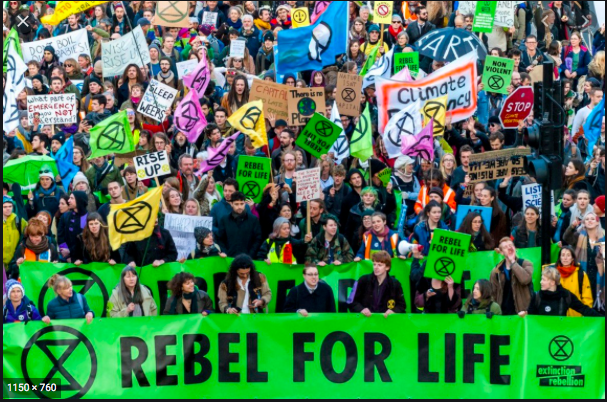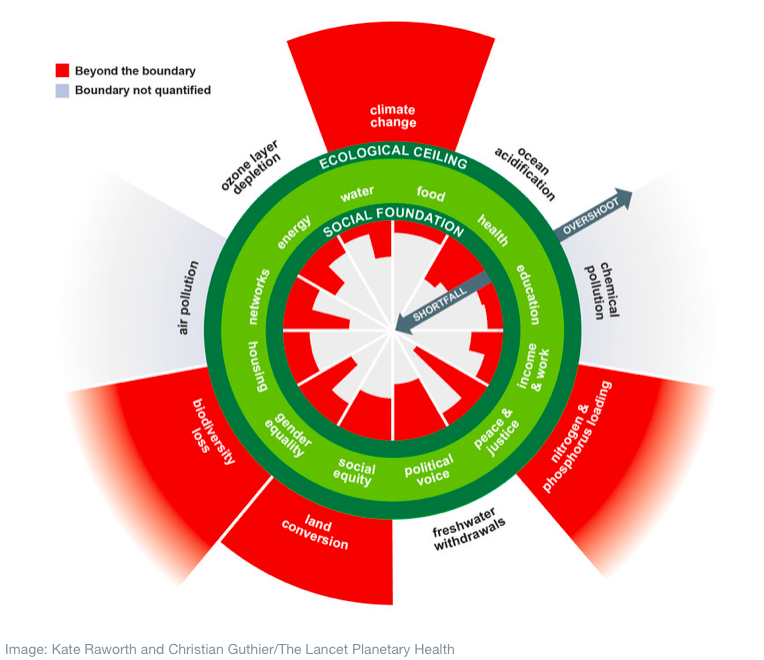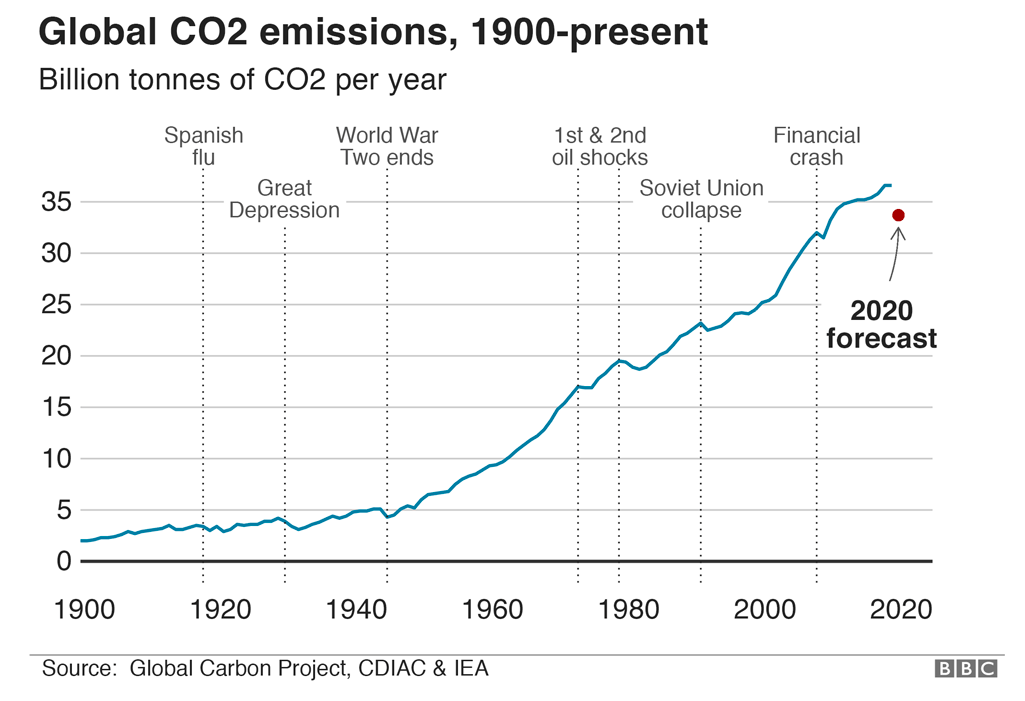Climate Change and the Coronavirus: what can we expect?
It was this time last year that we were in the midst of an Extinction Rebellion movement that took London by storm.
An ominous climate report, giving us just "12 years to save the planet", shook the foundations of a seemingly indifferent society. Many were calling it a revolution. The tides beginning to turn for Climate Change action?
People were striking for days on end, strapping themselves to trains and threatening to shut down Heathrow Airport. Hundreds of people were arrested for protesting to save the environment. Famous people among them. All this for the sake of the planet.

One year on and the dust has seemed to settle. Covid-19, the new word on everyones lips.
In this article, I question whether it is the current pandemic that offers the next greatest opportunity for a revolution to take place; to welcome in an epoch of greener existence.
No war, no recession, no previous pandemic has had such a dramatic impact on global CO2 emissions over the past century as has Covid-19 over the last few months.
We have been given a chance to reflect on a world that has benefitted from a lesser reliance on fossil fuels, commercial travel and global consumerism; and an opportunity to see what 'might' happen in the years to come.
A nascent change to climate change action in a post-coronavirus world seems promising. A chance to rebuild society to ensure a safer, greener future. The time is neigh.
Some Facts:
1. Global Emissions have decreased dramatically - almost overnight. China, the world's leading Nitrogen Dioxide emitter, have seen reductions of nearly 25%. - This is mainly a result of reduced manufacturing, air travel and road traffic, among other things.
2. CO2 levels for April last year show a reduction of 17%.
3. Britain's biggest green energy companies are investing billions of pounds into wind farm projects across northern England and Scotland.
4. Globally, the demand for jet fuel is down 65% year-on-year to April (90% Europe and 50% US). A reduction of commercial air travel has caused British domestic airline Flybe to collapse. Many are calling for an end to cheap flights.
5. Global Coal demand is set to fall 8% this year. The Guardian reports that 0% of Britain's power has been generated from coal for a record of 47 days and 16 hours at the time of writing .
Amy Jaffe - director of the Council on Foreign Relations' Energy Security and Climate Change program - says, "Suppose you were a policymaker, and you were thinking about what you would do to lower emissions — you just got a pretty good instruction."
The Benefit of hindsight: what response can we expect after Covid-19?
It is clear that our consciousness is beginning to change. The extinction rebellion is one such example of this.
More rallies and press coverage of organisations and figure heads such as the Extinction Rebellion and Greta Thunberg can be expected. Although, it could be a while longer before she emerges as someone of David Attenborough's vintage.
Jaffe argues that “the virus is prompting us to change our habits in ways that could make a longer-term contribution to climate protection — working from home, video conferencing, working shorter weeks or staggering office hours to reduce traffic.”
It is an opportunity to talk about planned economic stabilisation, and implement a planned degrowth.
Most promising perhaps, is how the concept of 'donut economics', which plans for a greener restructuring of society in the wake of Covid-19, is trending across Europe.
This phenomenon is taking place in Amsterdamn as we speak. The doughnut model - devised by British economist Kate Raworth from Oxford University’s Environmental Change Institute - is a guide for how countries, cities and people can thrive in balance with the planet.

The inner ring of the donut constitutes the bare minimum of what people need to lead a good life. These standards have been derived from the UN’s sustainable development goals and ranges from food and clean water to a certain level of housing, sanitation, energy, education, healthcare, gender equality, income and political voice. Anyone not attaining such standards is living in the doughnut’s hole.
The outer ring of the doughnut represents the ecological 'ceiling' drawn up by earth-system scientists. It highlights the boundaries across which human kind must not go in order to avoid damaging the climate (be it: soils, oceans, the ozone layer, freshwater or abundant biodiversity).
Between the 'ceiling' and the donut's hole is the good stuff: the dough, where everyone’s needs, and that of the planet, are being met.
According to the Guardian, the current global attachment to economic growth and the laws of supply and demand are deemed to be out of fashion by this new model. It is the “breakthrough alternative to growth economics”.
Furthermore, In the Uk, the interest in the Green Party manifesto has soared during the pandemic, and the City of London is implementing multiple car-free zones to promote greener transport alternatives and cleaner inner-city air.
Jon Erickson, an ecological economist at the University of Vermont's Gund Institute - who studies emerging infectious disease vectors in relation to climate change - says that, "If we truly treat climate change as an emergency, as we are treating this pandemic as an emergency, we have to have a similar level of international coordination."
Wishful Thinking?
Unfortunately, Covid-19 does seem to reflect a rather depressing pattern: dramatic emission reductions of this kind often follow major global events, and to no avail.

For example, in the case of the financial crash of 2008, and the fall of the Soviet Union in 1989, global CO2 emissions fell drastically before bouncing back and continuing on its upward trajectory.
The carbon emissions drop that followed the recession in 2009 was followed by a sharp rise of almost 6% in 2010.
Despite this, when the demand for power picked up again, it was green energy, specifically solar and wind, that were, by then, large enough to supply all the growth.
Nevertheless, there is a growing pressure on the world economy. Britain is projected to experience its worst recession for a hundred years. Unemployment is the highest on record since 2008. People are poor and will be for a long time. Will the government have the time and resources to fight climate change in light of the other challenges that we are faced with as a result of coronavirus?
Opportunists and optimists say yes. History says otherwise.

0 Comments Add a Comment?